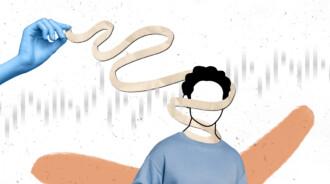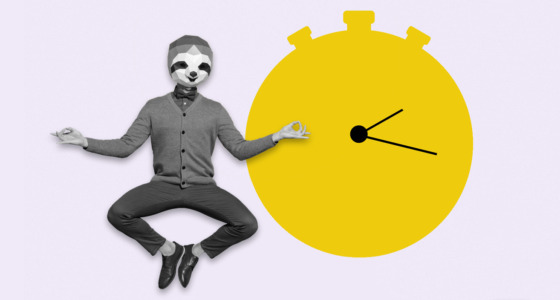

Traders experience many emotions, including optimism, excitement, euphoria, anxiety, fear, panic, depression, etc. Regret is one of them. Some traders can regret everything they do, while others avoid accepting what they do. In the first case, they deal with a regret theory; in the second, they suffer regret avoidance.
During the housing crisis of 2008, homeowners gave up their mortgages only after their property’s value plunged below 75% of the remaining mortgage.
Keep reading to learn how to identify regret avoidance and why it can be dangerous for your trading path.
What is regret avoidance?
Many newbie traders try to fight the market. They want to prove to themselves that they are right and the market is wrong. Also, such traders fear losing the funds and time spent. For example, a trader opens a failing position but doesn’t close it and even adds funds with the hope that the trade will be profitable. So they just keep doing the same things although they aren’t meeting their expectations.
Such behavior has several names, including regret avoidance, regret aversion, and the sunk cost trap. It’s very dangerous, as the trader just wastes investments, emotions, and energy.
Often, regret avoidance appears when people have low confidence. They think that accepting their wrong decisions will confirm they are bad traders and can’t ever be successful.
Another example of regret avoidance is when a trader doesn’t learn but applies the strategy that previously led to losses. Such traders believe they are right and want to prove that the strategy is perfect.
Never try to prove something. Flexibility is one of the key qualities of successful traders. If you can’t change your attitude, strategy, or approach, you will lose constantly.
How to overcome regret avoidance
Below you will find some working tips that will allow you to avoid regret aversion and move forward.
1. Analyze why wrong decisions happen
Don’t focus on mistakes; learn from them instead. You should understand the mistake and change your strategy so you don’t repeat it. Wrong decisions occur for several reasons, including lack of analysis, knowledge, fundamental factors, and overconfidence.
Remember that you will never win over the market. The trend is your friend, and you should follow it. You may think it’s one of the cliches, but it’s one of the major trading rules. There are millions of traders on the market. You won’t be able to fight them and change the price so that you win. Follow the market sentiment and close failing trades.
2. Apply stop losses
Now you may argue that increased volatility may make a price change several times. So, even a position that seems to be failing may turn into winning. It’s true. And the challenge is to evaluate whether the price will change or keep moving opposite your forecast.
For this, traders use stop-loss orders. These orders protect them from enormous losses. To identify correct levels, you need to evaluate the level of volatility, find previous support/resistance levels, and apply the risk-reward ratio, so that your potential rewards would be at least two times bigger than potential losses.
Stop-loss orders are determined before a trade is opened. Newbies like to change them during the trade because they doubt their decisions. It’s a huge mistake as you can’t analyze the market properly.
3. Follow the rules
You should develop particular rules you will always follow—no matter what your emotions tell you during a trade. For example, you never keep a position open if the price moves to a certain number of pips in the opposite direction.
The rules should be based on your experience. Test different approaches on a demo account before entering a real market.

Summing up
Regret aversion and constant regret are two damaging emotions for a trader. If you can’t learn from your wrong decisions, you will never develop an effective strategy that will help you trade in different market conditions.








